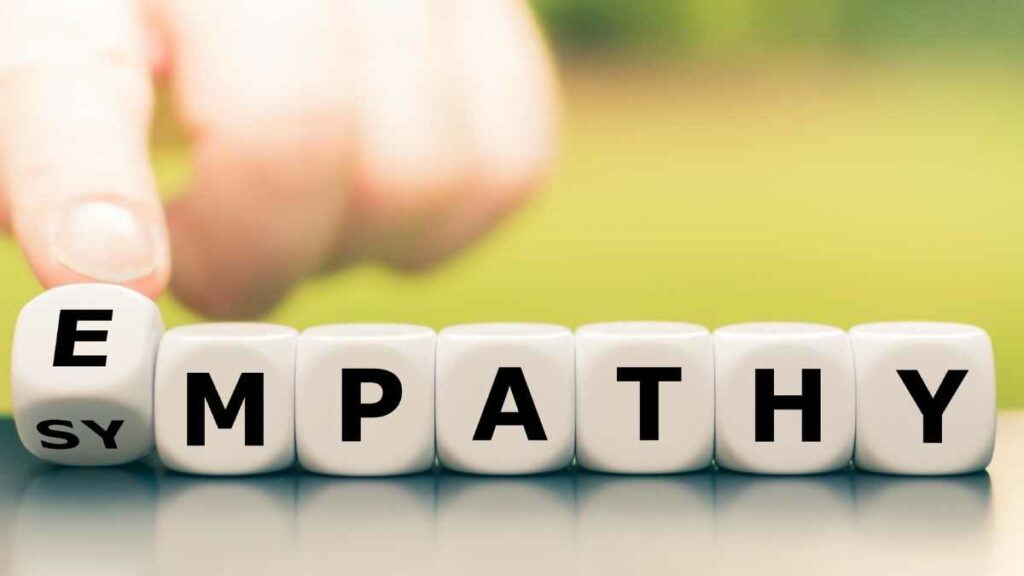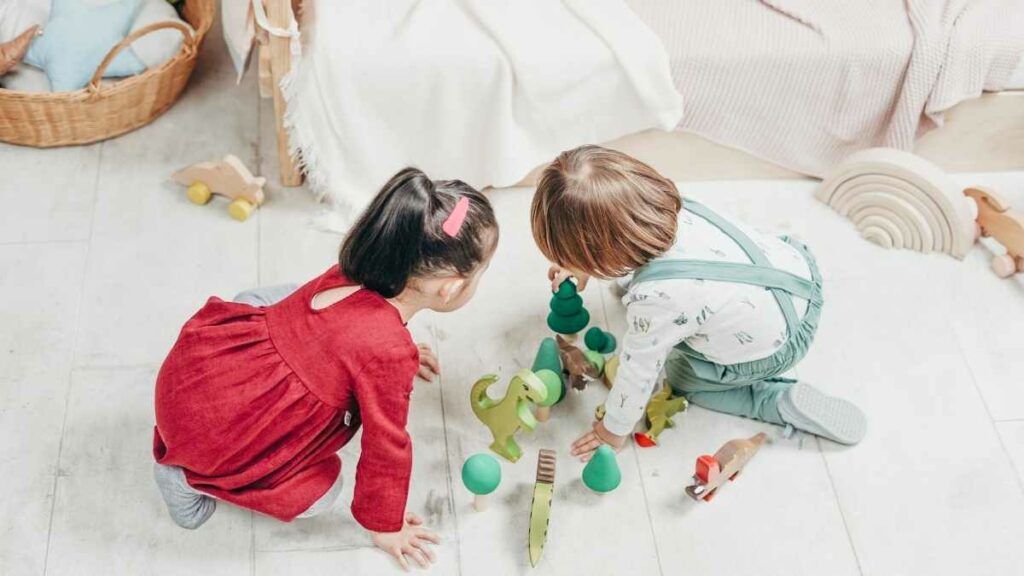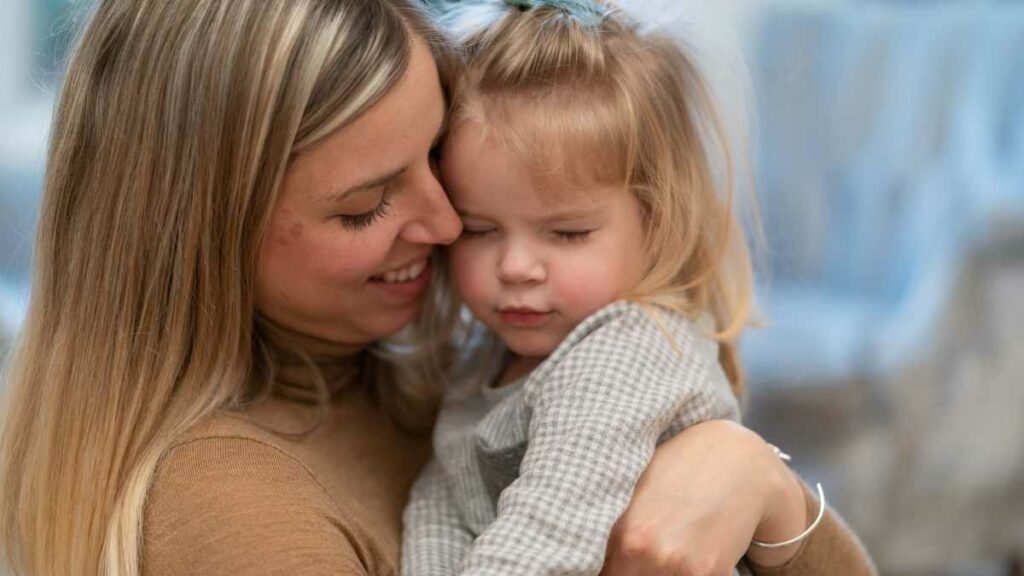How do toddlers show empathy?
Can you help your toddler develop empathy?
To feel another person’s pain, thoughts, feelings, or emotions is a vital part of being a human being.
In this post, we will look at empathy and ways you can help your toddler develop and show empathy more.
What is empathy?

To feel empathy means understanding how others feel or how you may feel in a similar situation.
The feeling of empathy is complex and involves many things.
Unlike people’s intelligence or physical appearance, which primarily depend on genetics, empathy is something children can learn at a very young age.
Empathy has immense value, and many studies confirm that emphatic children tend to do better in different social situations, at school, and later as adults.
Children with high levels of empathy are often viewed as leaders and top friends by their peers.
When do we start seeing children show empathy?
The early signs of empathy are seen in the hospital nursery among babies.
A newly-born child often triggers crying among all infants when they hear screaming. That is their way of responding to something unpleasant, although infants still cannot show many feelings.
Toddlers show genuine empathy when they try to connect with another person’s discomfort. When a two-year-old child sees his mother crying or in pain, he may start crying, ask whether she is okay, or offer a cookie.
The toddler will try to give his discomforted mother something that makes him feel better in a similar situation.
At what age do children usually start to show empathy?

Children start to exhibit visible signs of empathy around the age of two. They are beginning to understand how others feel more, even if they do not feel the same way.
Not only do they feel others’ pain, but they are also trying to soothe that pain or discomfort.
A widely known fact is that empathy is a skill you can learn in the early stages of life.
That is where you, as a parent, have a significant role in teaching your kid to be emphatic and feel other people’s discomfort or pain.
However, becoming emphatic does not happen overnight. It is a process that you constantly learn from childhood days to adulthood.
Early stages of children’s empathy

As we mentioned, even during infancy, we can see the foundation for compassion. Infants tend to connect with other infants through crying.
Of course, infants cannot say what they feel, but you can see what they are trying to do when they cry.
Later on, when babies reach six months, they start to exhibit some understanding of other people. They explore the world more and become aware of other people besides their parents.
They are beginning to interpret other people’s feelings and often make sad faces if they see another sad person or laugh when others laugh.
Between the age of one and two, small children start to look for social information from their caregivers.
They now increasingly understand that facial expressions connect to different emotions.
When they reach the age of two, children fully start to experience the concept of empathy – they understand that other people have feelings that are different from their emotions.
The role of parents in teaching empathy
An important thing for you is that as your child learns to be empathetic, they also learn to show their independence and tell what they want.
Children can sometimes show compassionate behavior in one moment and become aggressive in the next.
That is part of growing up, so you should always do your best to remain calm and teach your toddlers about the importance of empathy and how that can help them be good teenagers and adults later.
The positive news for parents is that they can use empathy to help improve their children’s behavior when they are young.
Encourage your children to be aware of other people’s feelings.
That will help your child grow into a compassionate adult and a person that this world needs.
A few ways to help your children learn empathy

- Show your children the world. Tell them what is going on around you. Show your children how to interact and be good with others, nurturing their desire to become more curious and explore relationships with others.
- Encourage communication. Small children do not have the full ability to comprehend and vocalize many of their feelings. You can clearly show them it is okay to feel bad in certain situations and relate. For example, if your child’s field trip, muppet show, or trip to the zoo has been canceled, you can say – “I feel your disappointment. I also feel like that when my plans get canceled”. Or you can point out the feelings of others. For example, if you see another child sitting alone in the park, you can say, “That boy/girl looks lonely and sad. Go and make friends with them and make them feel better.” These are just some basic examples that can nurture empathy in early stages of development. Use them whenever you can, and your child will start to learn some things quickly.
- Do creative role-playing. Playing with dolls or puppets is an excellent way for your child to explore other children’s feelings. If you want to explore how your child reacts to envy, make one puppet get something while the other gets nothing. Then ask your toddler how he believes the muppet without anything feels. Creative role-playing is an excellent way to teach children how to behave in certain situations and comfort others in times of need.
- Do not set very high expectations. An important thing for parents to keep in mind is that empathy is something that their child will learn all their lives. It is a work in progress. Some children learn it rather quickly and without much effort, while others need more practice. Never forget that egocentricity is normal for toddlers. It is just not possible for children to be empathetic all the time. It will take some time, but your child will eventually become empathetic and caring toward others if you make an effort.
Conclusion
Your toddler is beginning to develop empathy as an emotion, which is a good thing. It would help if you spent some time running through the tips on this page to support that development.
Young children need our help to develop, and considering the thoughts and feelings of others is a vital step in that process.
Children develop at different speeds, so if your toddler doesn’t show empathy now, it may not be something to concern yourself about. A lack of empathy can be a sign of autism, buts it’s not guaranteed.


